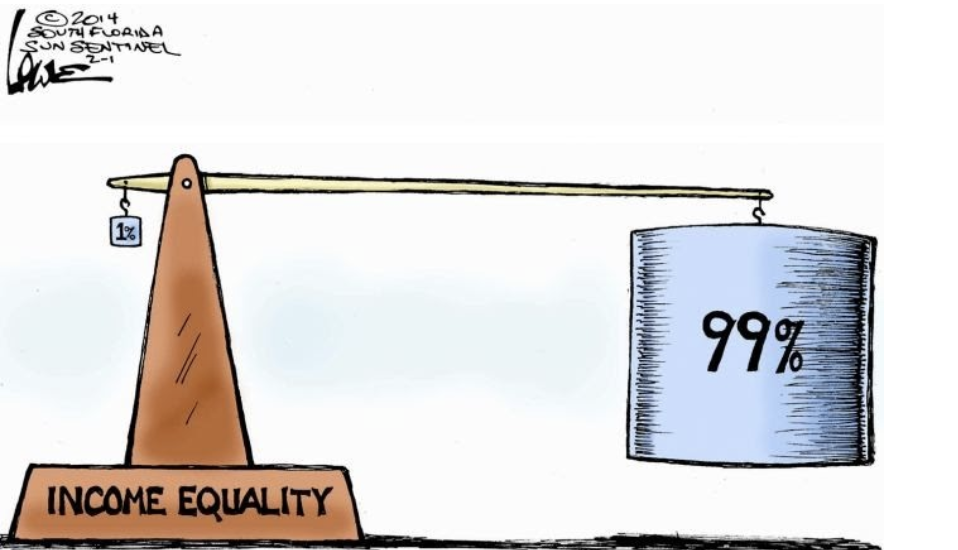
OLIVIA GINGOLD – APRIL 17TH, 2018
In the first day after announcing his decision to run for president in the 2020 election, Beto O’Rourke raised an astounding $6.1 million—more than any other 2020 hopeful so far. Even more astounding is that none of this funding came from any type of political action committee, as O’Rourke refuses to accept any form of PAC money. The senator, who hails from El Paso, Texas, caught the public’s eye in his unexpectedly close campaign against Ted Cruz for the Senate seat in November 2018. Beto has undoubtedly caught the eye of many Americans, but does he have the economic policies and the vision for America to back his fame? His rhetoric is inspiring, but he has few policy proposals to back his statements, making them come across as vague and difficult to follow.
When O’Rourke announced his presidency, he stated that he planned to make this “the largest grassroots campaign this country has ever seen.” A grassroots campaign is a campaign that focuses on mobilizing individuals in favor of a particular political outcome. True to form, he wants his campaign to be both “by the people,” and “for the people.” This is made clear by the direction O’Rourke has steered his campaign so far. He supports higher taxes (especially on the rich and on corporations) and a higher federal minimum wage. He also doesn’t believe in tariffs, instead supporting more liberal trade regimes like NAFTA and the TPP. Although he maintains relatively democratic principles, he is more moderate in his wording than other candidates like Warren or Sanders. An example of this wording is his choice to swap the phrase “Medicare-for-all” for the more general “universal, guaranteed, high-quality healthcare for all”. O’Rourke is a unique case because he claims he’s similarly liberal to the other candidates running for President, but his voting history and wording does not necessarily reflect those claims. O’Rourke takes more moderate stances towards Wall Street than Elizabeth Warren has, and has backed some type of student loan funding without embracing the concept of cost-free college like Bernie Sanders has. Additionally, although O’Rourke says he supports free college and single-payer healthcare, he did not sponsor either house bill.
O’Rourke has spoken occasionally about how he thinks these systems should look. He supports “universal, guaranteed high-quality healthcare,” with expanding Medicaid and Medicare as an option. He also proposed a public healthcare option called Medicare X which offers government-run insurance plans as options without dismantling other options. It seems O’Rourke does not necessarily want to provide Medicare for all; he wants to leave current institutions intact and fill in the gaps in the current system with a more robust, publicly-funded sector. For higher education, he believes the first two-year of higher education should be debt free, and plans to pay for debt-free college by raising the corporate tax rate. While both of these policies have the potential to save an America lots of money a year, the premise of other points O’Rourke has touched on during the campaign trail are also focused on improving the economic quality of life of middle-class and lower-income citizens in America
What does this look like? To O’Rourke, reducing inequality and fostering what may be considered the good, old “American Dream” appears to be a priority. O’Rourke believes that the American economy is “racist,” citing the wealth disparity between white and black people as evidence. In his words, “the economy is working far too well for far too few.” O’Rourke is also critical of Corporate America and laments the dying small business model, and the impact on increasing wage inequality that occurs when small businesses are left to fall to the wayside. He believes “when these small businesses falter, the jobs, meaning and purpose and functions in our community begin to disappear.” Not only do small businesses impact a significant amount of our social fabric, but they also create massive economic growth. By investing in our workforce, O’Rourke hopes to create a return on this investment and ensure that wage growth is captured by every citizen in America rather than the wealthy or privileged few.
One of O’Rourke’s more interesting proposals by far, isn’t a new rule or a new policy, but rather a plan to enforce old rules and ensure that states are held accountable. The way O’Rourke plans to do this would be by rescinding federal funding if state governments do not do their part, “so…bad behavior [is not rewarded when] state governments…[shun] their responsibility”. By doing this, states are forced to oblige. The policy is wonderful in theory, but the political implications around limiting the power of the state are strong. O’Rourke also stated in an earlier interview with CNN that he had no plans to run for president in 2020. These make it difficult to trust O’Rourke’s integrity, especially in the face of his flimsy non-policies.
O’Rourke’s vision of the economy is “an economy that works for all Americans,” but it lacks a solid set of policies or any firm plan. O’Rourke believes that “rigid policy proposals [are] a hindrance to cooperation,” and this may not be a bad thing, O’Rourke’s plan to step back and watch the landscape unfold may make him adaptable in unexpected situations. But in a time as tumultuous as now, it may be necessary to ask if America needs a president with a more developed and well thought out plan than Beto seems to have drawn up thus far. O’Rourke may have raised the most money on the first day, but in a presidential race, it’s not always about who starts first, but who finishes in first. Is O’Rourke a front-runner, or just an early starter?
Featured Image Source: GQ
Disclaimer: The views published in this journal are those of the individual authors or speakers and do not necessarily reflect the position or policy of Berkeley Economic Review staff, the Undergraduate Economics Association, the UC Berkeley Economics Department and faculty, or the University of California, Berkeley in general.



